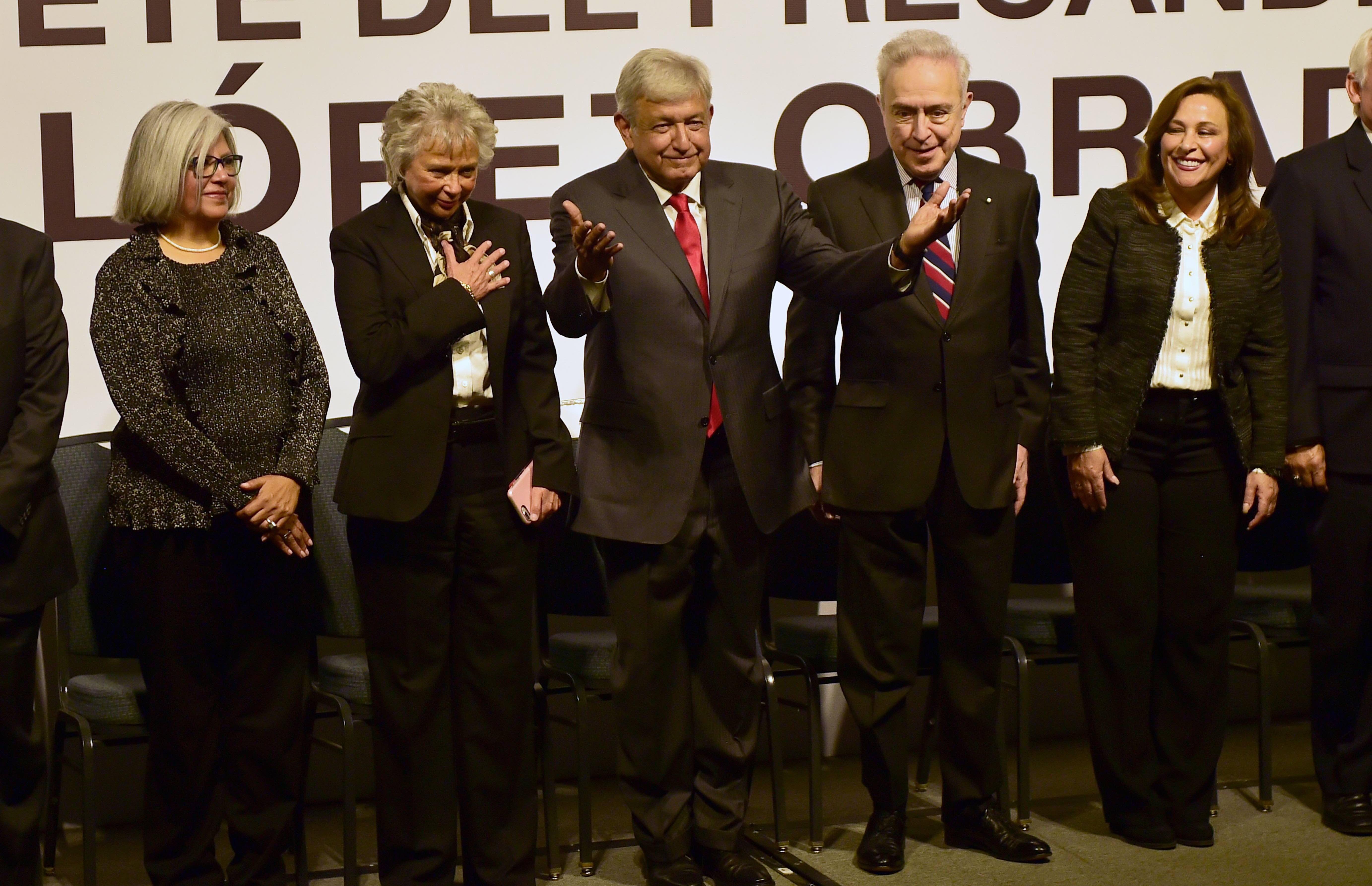
Politics & Society
A political watershed for Mexico?

The Mexican general election was not only the biggest in the country’s history, with over 3,400 positions at stake, but it may be the greatest shock to the political status quo since the Mexican Revolution ended in 1920
Published 6 July 2018
The newly elected president of Mexico is Andrés Manuel López Obrador, a long-standing leftist politician best known as AMLO.
He was born in a very small town in the south of Mexico, the first of seven children. Early in life, he became politically active by leading grassroots movements, particularly amongst Mayan indigenous people to defend their land and demand compensation to their communities. These years spent living among Mexico’s poorest and most neglected people may have ignited the anti-establishment flame in AMLO’s heart.

Ironically, his political fame gained momentum after losing out on the governorship of the south-eastern state of Tabasco in 1994. Alleging fraud and vote-rigging schemes, he marched to Mexico City to protest. Initially, five thousand people followed him and a further forty thousand more joined in later.
Shortly after, he successfully ran for mayor of Mexico City, campaigning “for the wellbeing of all, put the poor first”. During his administration, the government subsidised subway fares, provided stipends for senior citizens and created a public university.
Based on this year’s campaign, AMLO may no longer be such a revolutionary.

Politics & Society
A political watershed for Mexico?
After losing two general elections (in 2006 and 2012) where his opponents labelled him as ‘a danger to Mexico’ and unfavourably comparing him to Hugo Chávez and Fidel Castro, AMLO moderated his rhetoric and approach to politics. His winning campaign message was as ambiguous as it was simple. He campaigned on “eliminating corruption” as the solution to all of Mexico’s complex challenges.
Beyond that catchphrase, AMLO’s campaign provided few details about his prospective government’s agenda. Further, he and his advisors’ often contradicted each other, sending mixed messages on how to tackle the many challenges Mexico faces.
His main message was ending corruption, yet he formed alliances with some of the most blatantly corrupt people in Mexican politics; a significant proportion of his voters are liberal and self-proclaimed progressives, but he built a coalition with a conservative party.
But AMLO’s vague and sometimes contradictory platform did not stop Mexican voters who, fed up with the corrupted status quo, headed to the polls with an almost religious-like hope. And many of them took a leap of faith giving him their vote.
AMLO’s first round of cabinet picks will be encouraging to his supporters. They include many well-credentialed academics, a former Supreme Court justice, as well as experienced former ministers and legislators.

Now that the election is over, the more populist and idealistic AMLO may return, but nothing is certain. Given the diversity of his voters, the new President will have a hard time addressing Mexico’s serious crises, while simultaneously keeping them satisfied.
So where are the most likely the prospects for change?
Macroeconomics: AMLO warmly recalls the statist ages of revolutionary nationalism in Mexico, when the government controlled the business sector and unions in order to boost economic growth and still keep inflation under control. However, some economists warn that his ideas are out-dated and are no longer relevant in a globalised world.

Politics & Society
What’s wrong with Venezuela’s Constituent Assembly?
Social development: AMLO’s proposals regarding social development are among his most popular and controversial. In a country where only 17 per cent of high school graduates get a place in a university, AMLO has promised universal access to tertiary education. He also promised a stipend for all senior citizens and to increase the minimum wage 15.6 per cent annually until the end of his term. And he committed to do all of this without increasing taxes. AMLO argues that eliminating corruption will save the government enough money to fund these programs, but some experts are dubious.
Social issues: AMLO avoided sensitive topics as much as possible during his campaign. The simplicity, and ambiguity of his message was especially evident in relation to controversial topics in Mexico, like abortion and same-sex marriage. AMLO has declared he will “let the people decide” and submit the decisions to referendum, but many of his followers think that such rights should not be subject to public opinion. The leftist party he leads and the conservative party he built a coalition with are likely to collide in Congress regarding these issues.
US-Mexico Relationship: Even though Donald Trump played no significant role in this election, if AMLO learnt anything from the mistakes of his predecessor, he will likely stand up to the American President. Always measured and claiming to respect “self-determination of peoples”, AMLO declared that Mexicans ‘will not be the piñata of any foreign government’. There is no more important relationship for Mexico than the one with the United States, and the world is yet to see how these two nationalist presidents will behave towards each other. An early key issue will be the future of the North American Free Trade Agreement.

On the surface, AMLO’s over-whelming victory seems to be an abrupt change of course in Mexican politics. But it is too early to say what long-lasting change will come from it.
The now-former candidate used to be a radical populist, but all things change with time. To ensure a path to victory, AMLO left behind his fiery revolutionary rhetoric. Only time will tell if his long-held leftist beliefs were merely hidden or have been abandoned for something else.
Andrés Manuel López Obrador won the general election, but it is too soon to know if the left did as well.
This article is co-published with the University of Melbourne’s Election Watch.
Banner: PEDRO PARDO/AFP/Getty Images